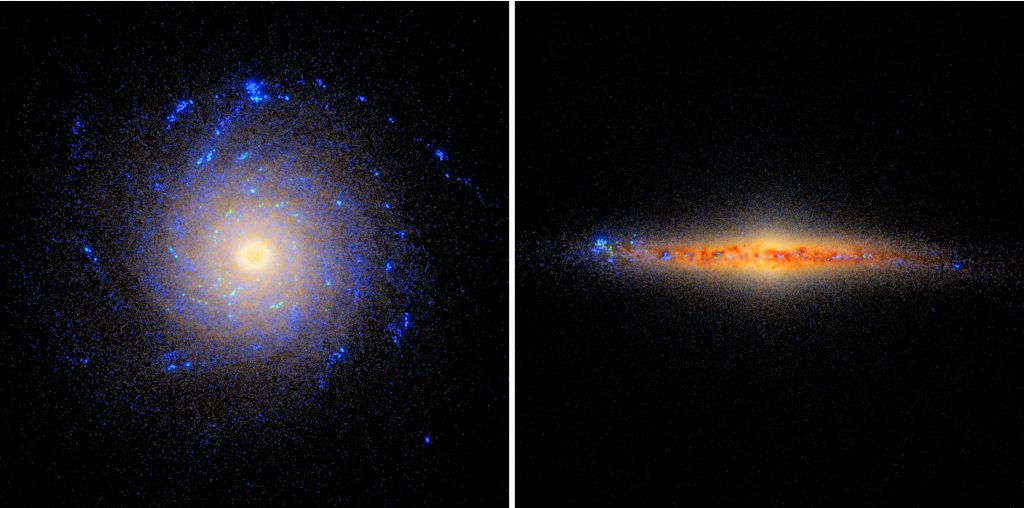
Brad Gibson (UCLan), Gareth Few (Exeter), Daisuke Kawata (MSSL), and Chiaki Kobayashi (Hertfordshire) have been awarded a remarkable 6 million core hours of Tier 1 High Performance Computing time as part of PRACE‘s Extreme Computing Initiative. Their project (GalChem: Galactic Chemodynamics in the Era of Gaia) will allow the generation of mock observational data from a suite of extremely high resolution simulations which possess a self-consistent treatment of the chemical evolution of the underlying stars and gas within each realisation. These mock observational datasets will link directly to the anticipated returns from future missions and experiments such as ESA’s Gaia and the Gaia-ESO Survey, and will be made available to the public. Supplemented with the team’s recent award of 7 million core hours of access on the UK’s High Performance Computing (HPC) facility, administered by STFC’s Distributed Research utilising Advanced Computing (DiRAC) has meant unprecedented success for UCLan.
The simulations which will make use of this allocation of resources build upon the world-leading work which has been undertaken at both UCLan and UCL/MSSL in bringing together powerful gravitional and hydrodynamical models of galaxies like our Milky Way, with our unique expertise in tracing the distribution of chemical elements (life’s own building blocks) throughout the Universe.
Two new PhD students at UCLan (Maider Sancho Miranda and Ben Thompson) have been employed to aid in the exploitation and data mining efforts of the team.
